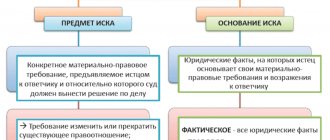One can only guess how the prejudice appeared and took hold that it is immeasurably more difficult to leave an individual house than to leave an apartment. That for this it is necessary to collect significantly more documents.
Perhaps it dates back to Soviet times, when almost all apartments were owned by the state, and houses could be private.
To register a residence permit, they required a “house book” - a special type of document, about which most people had only the most approximate idea. And when they heard that in order to deregister, an “extract from the house register” was needed, people fell into a slight panic, not understanding where to get it.
Then the situation with home ownership changed, and the concept of “house register” remained in the regulations for registration and deregistration. Continuing to scare those who want to register or cancel registration at a particular address in the private sector.
We would like to reassure you right away - leaving a private house is no more difficult than leaving an apartment (privatized or municipal). This article is dedicated to this issue.
First about the house book
To “dot all the i's” - in 2022 there will be no more house books in Russia. They were abolished a little earlier, during the transfer of functions of registration of citizens from one department to another.
But in fact, it was a document necessary for a private homeowner, and kept by him.
Since private houses were never part of the state housing stock, some housing authorities did not keep records of registration and check-out of their residents. They only prepared the house register, and then the owner of the house made all the entries himself.
Finding a house register sometimes really became a problem. If a family lived in a house for decades, without registering or registering anyone, they forgot about the book, and it could get lost. This happened especially often with houses received by inheritance. Obtaining a duplicate was not particularly difficult, but the trouble was that the duplicate was “clean”, and it was really difficult to restore the history of registrations and extracts at this address.
But let’s return to our time, to the norms that are relevant at the moment.
Until 2021, registration/discharge was handled by the FMS - Federal Migration Service. Currently – UVM (Office for Migration Issues). Accordingly, the administrative regulations changed and there was a transition to electronic document management. This happened in accordance with Order of the Ministry of Internal Affairs No. 984. The order came into force in April 2021. Now you don't need to keep a house register. And receive extracts from it too.
All information about residents is stored electronically in the Department of Internal Affairs of the Ministry of Internal Affairs, and from there it is taken by everyone who needs it and who has the right to receive this information by law.
So no one has the right to demand from a citizen an extract from the house register. Registration is confirmed by an adult’s passport and a special registration certificate for children issued by the Housing Office.
Stage No. 5 - We wait for the court decision to come into force and discharge the defendant
The law has a deadline for the entry into force of a court decision - Art. 210 Code of Civil Procedure of the Russian Federation. For what? So that the defendant has time to file an appeal to challenge the decision to a higher court - Art. 320 Code of Civil Procedure of the Russian Federation.
How long? In-person decision - if the defendant does not file an appeal, it will come into force in a month (clause 1 of Article 209 and Article 321 of the Code of Civil Procedure of the Russian Federation). The month must be counted from the date of the final court decision. The date is indicated in the court decision itself. For example, “The reasoned decision was made on such and such a date” or “The decision in a reasoned form was made on such and such a date.”
With an absentee decision it is different - it comes into force 7 days after the defendant received it, but did not appeal - clause 1 of Art. 244 and paragraph 1 of Art. 237 Code of Civil Procedure of the Russian Federation. What if he doesn't take the default judgment? In such a situation, it will come into force 1 month and 10 days after its adoption in final form - paragraph 14 of the Review of Judicial Practice of the Supreme Court No. 2 (2015) dated June 26, 2015. But it's better to wait 1.5 months.
When the court decision comes into force, plaintiffs need to take a copy of it to the passport office. The passport officer will pick it up. As a result, you need to get a new extract from the house register, in which the defendant will no longer be on the list of registered ones.
The court itself will send a copy of the decision to the regional migration department at the regional Ministry of Internal Affairs (formerly the Federal Migration Service), i.e. there is no need to go to them.
Is it possible to leave home?
In order to be discharged from somewhere, you first need to register there. So, first of all, let’s find out how you can end up registered in a private house?
This is done in agreement with the owner, and is not much different from registration in an apartment. You can conclude a temporary residence agreement with the owner and, on this basis, register temporary registration in his house.
You can register on a permanent basis, with the consent of the owner of the house and in accordance with the provisions of Government Decree No. 713 (of 1995).
- If the registration is temporary, it will expire when it expires. Registration can be canceled prematurely in court if the tenant has violated the terms of the contract or the rule of law.
- If a citizen is registered on a permanent basis, he can either leave at will or be forcibly deregistered through a legal process initiated by the owner.
The owner must have valid grounds for forced eviction, as specified in the statement of claim. For example, a registered citizen’s refusal to pay utility bills, his antisocial behavior, which makes it impossible to live with him in the same apartment, or his commission of a criminal offense.
In what cases can this not be done?
Before you go to court with a request to expel a relative from your home, you should keep in mind that in some situations it is impossible to do this:
- Being a minor and lacking permission from the supervisory authority (guardianship department at the child’s place of registration).
- Incapacity.
- The child has a share in real estate, including a communal and privatized apartment.
- For minor citizens, housing is provided of poorer quality, smaller area, etc.
When leaving municipal property, residents are tenants who have entered into a social tenancy agreement. The discharge will take place on the basis of the evidence provided that the person has moved out of the apartment and lost the right of residence.
Can this be done without the owner?
The voluntary discharge of a tenant does not require permission or approval from the owner of the house. Not only does it not need to be taken with you to the Department of Internal Affairs of the Ministry of Internal Affairs, but it is also not necessary to notify you that you are being discharged. In principle, you can even “skip” the deregistration operation itself - just submit an application for registration at a new address.
The UVM inspector who accepted the application will himself send a request, according to which the citizen will be removed from his previous registration address.
It is impossible to register in a private house without the consent of its owner. To obtain registration, you will need his written consent and presence when applying for registration. And you can even sign out with a power of attorney.
Example
Citizen A, living as a lodger in the private house of owner B in Ryazan, was sent on a long business trip to Moscow, where he required temporary registration. Not wanting to make an extra trip to Ryazan for discharge, A called his friend S. He agreed with him about assistance, after which he sent S a notarized power of attorney, an application for discharge, and his passport. S submitted an application for A’s discharge to the Department of Internal Affairs, handed over his passport, and then received it back with a discharge stamp. And sent it by courier to Ryazan.
The question may arise, why was all this necessary for A, if he could simply submit an application for registration at a new address, and the Department of Internal Affairs itself would remove him from the old registration? Simply because this operation would take more time. The request would have gone through unhurried “bureaucratic” channels from Moscow to Ryazan, stayed there for the duration of processing, and then returned back the same way. All this time, A would have to do without a passport, having only a temporary identity card, which is not always convenient. Extract in person (or by proxy) took only 3 days.
Special cases
How to discharge a disabled person from an apartment if he is not the owner?
In most cases, the court will not side with the plaintiff if he is trying to evict a citizen who has 1 or 2 degrees of disability .
These categories of citizens are protected by Government Order dated February 26, 1994. In such situations, there will be absolutely no difference whether he is the owner of the residential premises or just a tenant.
If an incapacitated citizen has minor children, you should also not wait for a positive decision in your favor. Cases in which a person with disabilities participated in the acquisition of living space .
Read more: Acting Head of Human Resources
In all of the above situations, only irrefutable evidence showing the danger of other persons living in the same territory together with a citizen incapacitated due to illness can help win the case.
Regardless of the reason for going to court, you should prepare for the fact that the process will be complex and lengthy. To be more confident in the success of the case, it will be useful to contact an experienced lawyer and lawyer to conduct the trial.
If you find an error, please select a piece of text and press Ctrl+Enter.
Didn't find the answer to your question? Find out how to solve exactly your problem - call right now:
+7 (Moscow) +7 (St. Petersburg)
An incapacitated person may be discharged by:
How to discharge an incompetent person from an apartment? Is this possible? If you want to discharge an incapacitated citizen from a residential premises that does not belong to him by right of ownership, certain conditions must be met. At the same time, the law clearly provides for those cases when a citizen can be discharged from housing. In particular, this is possible:
- When an incapacitated person uses housing for other purposes, this may be the reason for going to court. According to Art.
What do you need to know?
- From 2021, an extract from the house register is no longer needed to deregister, since the maintenance of house registers has been cancelled.
- You can check out from your old address at the same time as registering at your new address. If you are deregistering due to the sale of real estate (house), it is better to start the procedure in advance. The purchase and sale agreement is concluded for a house where no one is registered.
- To register at a new address, you need a title document for the property, the consent of the homeowner, a social tenancy agreement, or another document giving the right to register at this address.
- Moving to a private house, accompanied by registration, requires the consent of the property owner (if it is not you). The owner's consent must be dated the same day on which the tenant submits an application for registration.
- You can issue an extract not at the Department of Foreign Affairs, but at the MFC (GBU “My Documents”). The operating hours of the MFC are more convenient, and there are no queues. But it will take more time to deregister. The deadline at the UVM is 3 working days, and through the MFC - 6 working days, that is, according to the calendar - more than a week.
- An incapacitated citizen can be discharged from home only with the consent of the guardianship and trusteeship authority.
- Children and disabled people cannot be discharged not only “to nowhere,” but also “to anywhere.” Their future housing must be approved by the guardianship authority. Living conditions in the premises where children and disabled people will be registered must be no worse than the previous ones. This means that even if you find an option that is suitable from your point of view, you cannot be sure that the guardianship authorities will find it equally suitable. There is always a risk of receiving a ban on the discharge of a child or disabled person from the guardianship authority.
So, we have dealt with the important strategic aspects of leaving a private home. Let's move on directly to the registration procedure.
The application has been submitted, what next?
There is good communication between the State Services portal and the department, so the application is promptly sent to where it is needed. Now you need to track the status of the application in your personal account or the mobile application of the state portal. As soon as the request is processed, a corresponding notification will appear - it will also be duplicated by email address.
The applicant will receive information that he can go to the selected unit of the Ministry of Internal Affairs; he must take his passport with him. The employee will check the passport data and those indicated in the online application for an extract on the State Services. If everything is in order, the corresponding stamp is affixed to the passport.
The extraction procedure is free for citizens; there is no need to pay state fees. The period for providing public services is 3 working days.
How to leave a private home?
The procedure itself is standard, similar to deregistration from an apartment. A citizen should submit an application for deregistration, attach a passport to it, wait until the documents are completed, and receive a passport with a stamp deregistration.
Deregistration is possible in various ways:
- Automatically, when applying for registration at a new address
- Without indicating a future address (“to nowhere”)
- By power of attorney issued to another person
- Online through the State Services portal (you will still have to go to the Department of Internal Affairs of the Ministry of Internal Affairs with your passport, but only once - to set a discharge stamp)
How can an owner remove a person from an apartment?
It’s good if the “tenant” agrees to be discharged and will carry out this procedure himself through the same State Services or another convenient method. But it happens that the registered person does not want to be deregistered, then the owner needs to take some actions.
Unfortunately, it is impossible to discharge a tenant from your apartment through State Services. If the tenant does not want to be deregistered using the standard method, he will have to go to court. If that citizen does not live in the apartment or is not a family member, the court will side with the plaintiff and make an appropriate decision. Having received the decision in your hands, you need to contact the MFC or the department of the Ministry of Internal Affairs and issue an extract.
If that person has no other place to stay, the court may delay the discharge. That is, give a deferment on eviction for up to 1 year. It is believed that during this period the citizen must resolve his housing issue, and he can be safely discharged. But if we are talking about a minor, difficulties may arise and the involvement of guardianship authorities will be required.
5 / 5 ( 1 voice )
Where to check out?
It should be recognized that in our time, extract/registration has become much more convenient, since it has become possible to choose the most convenient registration authority.
If previously for this purpose it was necessary to go exclusively to the FMS (passport office), then in 2022 you can deregister:
- In the same passport office (only now it’s not the FMS, but the UVM)
- In the MFC "My Documents"
- In general, do not go anywhere, but submit an application from your PC through the State Services portal (EPGU)
But do not forget that personal presence is still required. After submitting your application through State Services, you will have to appear at the UVM at the appointed time to get a stamp in your passport.
Rights of property owners
In order to expel a registered person from the house, the owner should know his rights.
The grounds for eviction may be such regulatory acts of the Civil Code of the Russian Federation as:
- №292;
- №209;
- № 288.
The law also states that the owner must first try to resolve the issue peacefully. During the trial, evidence will be required to show that an amicable settlement was attempted with the defendant. Such standards do not apply to persons who do not have at least shared ownership of a given living space.
Privatized property
In the context of private real estate, which has already become the property of a specific citizen, it is quite possible to write a person out of the house if he does not live there. The court will need to provide papers that confirm this fact. The grounds must be supported by documents. If the resident finds arguments that he cannot lose his registration, the claim will be denied.
Municipal housing
Voluntary deregistration has a simple algorithm of actions:
- You need to come to the passport office, the MFC, or fill out an application through State Services.
- Re-register for another living space on the basis of Article No. 20 of the Civil Code of the Russian Federation.
The situation is more complicated when a person does not agree with the intentions of municipal employees. Collection of documentation will be required in the case of state real estate. Such a house is on the city or regional balance sheet, and only representatives of government agencies are authorized to demand the release of the resident.
Scheme for registering a person depending on the form of ownership
But even so, the trial can become more complicated if the citizen has nowhere to go. The most favorable development of events for the municipality is that the person will receive a deferment to find a new home and will be accommodated, but a little later. Negative outcome of the case - the judge has the right to reject the request of government bodies if infringement of the citizen’s interests is proven.
Donated house
Private houses are often passed on by inheritance or through a deed of gift. During such transactions, everyone who was registered in the property has every right to live there, even after a change of owner. Only the new owner will be able to deregister persons if there are valid reasons.
If the proceedings take place between relatives, then blood family members have the right to doubt that the deed of gift is drawn up correctly and to challenge the legality of the transaction through the court.
What should be done?
Step-by-step instructions for discharge from a private home are as follows:
- Prepare all necessary documents
- Visit the passport office (territorial division of the Department of Migration at the place of registration) or the MFC
- Write a statement. Lawyers of the Prav.io portal recommend immediately writing an application for registration if you know your new address - then deregistration will occur automatically
- Submit the application and documents to the registrar for authentication. They will all be returned immediately, except for the passport. The passport will remain with the registrar as it will need to be stamped
- Come on time to collect your passport
The procedure, as you can see, is extremely simple. You just need to make sure that all documents are available.
ATTENTION! If you are checking out “to nowhere”, you won’t need anything at all except your passport and application. If you simultaneously register at a different address, you need title documents for the house, apartment, or the consent of the owner of the house. As well as the personal presence of the person who registers you in the living space that belongs to him.
Prescription procedure
The discharge procedure largely depends on the circumstances and specific situation. If the parent is the owner of the property, deregistration from the privatized apartment depends on the participation of the son or daughter in privatization events. When registration is issued after privatization, the parent faces a trial in order to recognize the relative as a former relative.
According to the court ruling, Rosreestr takes steps to deregister if there are other relatives who are ready to register the child with them (grandfathers, grandmothers, aunts, uncles, father).
The second option for deregistration is associated with a situation where the son is no longer a minor, but his behavior and lifestyle lead to a deterioration in the lives of other family members:
- The child systematically disturbs the peace of other residents (parents, neighbors).
- A capable citizen does not pay utility bills.
- There are cases of drug abuse, alcohol abuse, and immoral lifestyle. There is documentary evidence of this fact (certificates from doctors, dispensaries, about registration, witness statements).
If you have a share in privatized housing, you will need to provide an alternative place of residence and other equivalent property for discharge.
Where to go
When the parties were unable to agree on discharge in good faith, in relation to adult children the problem is resolved through the court. As practice shows on this issue, success depends on the completeness of the evidence providing grounds for eviction. The judiciary evaluates the materials presented at trial and hears the positions of the parties and interested citizens.
What documents will be needed
There is no clear list that must be presented at trial. The list depends on individual circumstances that confirm the existence of legal grounds.
In addition to the personal documents of the parties, documentation on ownership and a house register are prepared.
The additional package includes the following papers:
- indicating the possibility of registration at the place of residence at a different address, in different property;
- conclusion with the results of a real estate survey on the suitability of housing for a minor;
- materials with testimony, if the reason for deregistration was the child’s inappropriate behavior or violation of living standards.
- signatures of the residents of the house demanding that the violator of public order be discharged;
- copies of documentation addressed to law enforcement agencies, with a request to take action.
Since when analyzing the submitted papers the judge will also take into account the financial situation of the defendant, it will not hurt to prepare extracts and certificates indicating the defendant’s income and employment.
Making a statement
To file a claim, you must meet all filing requirements. In addition to the format for presenting information, the content of the appeal itself is also important. It is recommended to use standard forms, entering information about the parties to the case and the addressee for consideration in accordance with accepted rules.
The main content of the claim must include an indication of the reasons, provide legislative references confirming the argumentation and the existence of grounds. The statement is written concisely, expressing itself clearly, directly, without the possibility of discrepancies.
The statement of claim must be signed, dated, and include an extensive list of documentary attachments.
Statement
If you submit an application through the State Services portal, its form will appear in the window. If you go to the UVM or MFC “My Documents” in person, you will be asked to fill out a form.
There is nothing particularly incomprehensible in it, but it is better to fill it out in advance, in a calm environment, at home. Perhaps the registrar will not accept your “homework” printed on a printer, but at least it will be easier for you to transfer all the information from it to similar windows of the issued form. For children under 14 years of age, forms must be filled out by parents. Minor citizens over 14 years of age (who have received a passport) do this on their own.
The application shall indicate the following information:
- In the “where” column, the local authorities of the corresponding area are indicated
- In the “from whom” column - last name, first name, patronymic
- In the “based on what” column - data on the passport or child’s birth certificate (name of the document, series, number, where, by whom, when issued)
- In the “registration by” column - new address or nothing
- In the “de-registration” column - the address at which you are currently registered
- Signature and date in the appropriate boxes
You can download a sample form for filling out in advance and practice. As you can see, the data is simple, but blots and corrections are not allowed. Therefore, it is important to concentrate on filling it out correctly.
FAQ
I am the owner of the premises. Can I register my ex-wife through State Services?
No, to discharge a former family member you must go to court; an out-of-court procedure involving filing an online application is not possible. In general, the court will side with you unless there are other aggravating circumstances.
Can I discharge my child through State Services?
Yes, the portal has such an opportunity. But keep in mind that a child under 14 years of age must in any case be registered with one of the parents. You can’t write him out anywhere.
I am 16 years old, can I apply for an extract through State Services?
Yes, at the very beginning of the online application you need to select the option “I am applying for myself, I am under 18 years old.” Applications are accepted from citizens 14-18 years old, but you will need to provide the details of a legal representative, and a minor can submit an application only from his account confirmed on State Services.
How quickly will the statement be issued?
The term for providing the service is 3 working days.
Can I be denied an extract?
No. If you are a legally capable adult citizen of the Russian Federation, you have the right to deregister at your own discretion. In this case, it is not necessary to register somewhere, but if you do not have a temporary or permanent registration for a long time, you may be fined.
Sources:
- Public services: Removal of a citizen from registration at the place of residence.
about the author
Irina Rusanova - higher education at the International East European University in the direction of "Banking". Graduated with honors from the Russian Economic Institute named after G.V. Plekhanov with a major in Finance and Credit. Ten years of experience in leading Russian banks: Alfa-Bank, Renaissance Credit, Home Credit Bank, Delta Credit, ATB, Svyaznoy (closed). He is an analyst and expert of the Brobank service on banking and financial stability. [email protected]
Is this article useful? Not really
Help us find out how much this article helped you. If something is missing or the information is not accurate, please report it below in the comments or write to us by email
What documents are needed?
For checkout - only your own passport. The abolition of the house register greatly simplified the procedure.
For parallel registration - originals of title documents for the house or apartment where you want to register, or consent from the owners for permanent or temporary registration. Plus their personal presence.
The application must be completed on site
Since your passport will be taken away, be sure to obtain a temporary ID from the registrar. The phrase “my passport is registered” in our time will not convince employees of the Ministry of Internal Affairs of anything in the event of a document check.
According to the law (more precisely, the order of the Ministry of Internal Affairs) it is necessary to issue temporary certificates to citizens if their passports are confiscated for operations with them.
Who cannot be discharged through the court
However, some people registered in the home cannot be discharged without consent. These residents include:
- owners of minimum shares for fictitious registration;
- people living in the house by testamentary refusal, although they are not the owners of the living space;
- a citizen who has refused privatization (if he does not live there, the owner will be able to write out the registered one, subject to documentary evidence of actual stay at another address);
- former spouses, if there is a corresponding clause in the marriage contract;
- minors forced to live temporarily in an orphanage, but retaining the right to registration in their parental housing.
Moreover, it does not matter whether there are family ties between the owner of the property and these residents. In other cases, you can safely discharge a capable and adult person from home without consent or physical presence.
What is the price?
Registration of citizens and their deregistration are not subject to state duty. That is, the procedure is free.
But it is possible that some expenses will be required for:
- Notarization of a power of attorney if you are registering through a representative
- Procedural costs for discharge through the court
- Restoration or re-registration of title documents for real estate
- Obtaining a duplicate death certificate (if you are discharging a deceased person from the home)
ATTENTION! Sometimes registrars offer a paid service - filling out an application for you. It's up to you whether to use it or not. But the registrar is obliged to warn the citizen that the service is paid. If the registrar did not offer the service, but simply filled out your form on its own and then demanded payment, this is illegal.
Instructions for filing a claim
How to discharge an incapacitated person from an apartment? In cases where you have managed to collect a good evidence base, you can go to court or the municipality.
You should contact the municipality in cases where a disabled citizen lives in a non-privatized apartment.
If the management company’s response does not produce results, you can immediately file a statement of claim with the district court:
- At the beginning, you will need to pay a state fee , currently amounting to 200 Russian rubles for ordinary citizens and about 4,000 thousand rubles for companies and organizations.
- lawyers can help you with this .
- It is written to the district court on behalf of a specific plaintiff.
- After this, you must write the word “Application” in capital letters.
- In the following paragraphs, you list the reasons why a disabled person may be considered to have lost the right to use residential premises. In this paragraph, it is important to indicate the articles of the law confirming this fact.
- After this, you must indicate those documents that can serve as evidence and attach copies of them. If you have previously contacted the municipality, be sure to include a copy of this letter and the response from the governing body.
- At the end there is a signature and the date the application was written. You must also indicate the date on which you wish to receive a response to the claim. It is usually given within 10 to 30 business days .
As soon as the court rules in favor of the plaintiff, you must contact the passport office (
If the house is demolished
A private house can be demolished as a dilapidated building. As compensation, the owner must be provided with new housing. In this case, discharge and registration occur in the general manner.
But there are times when a dilapidated house is demolished in the absence of the owner. For example, he may be in prison, serving in the army, on a long voyage, or simply on a long absence. Meanwhile, the municipality is carrying out a renovation program or freeing up space for the construction of federal facilities.
Despite the fact that by the time the owner returns, the house no longer exists as such, it is still necessary to check out of it. In addition, the owner of the house has the right to monetary compensation and the provision of a new place of registration.
You need to come to the UVM and write an application for a new registration address. And then - to the district administration for compensation. If compensation is not paid, you must go to court.
You can find out how to do this from the lawyers of the Prav.io portal. And find on the portal a qualified lawyer in housing law who will help you “sue” the money from the administration that is due to you by law.
Strangers don't live here
But such claims are not considered simple for judges considering cases of “discharge.” The explanations of the Judicial Collegium on Civil Cases of the Supreme Court are important not only for the judiciary. They will be very useful for citizens who find themselves in a similar situation.
The case considered by the Supreme Court cannot be called simple. The father, who is also the owner of the property, asked the court to discharge his own son, who left for another city more than ten years ago, from the apartment. The son did not pay for utilities and did not come to the apartment where he was registered.
Two courts—district and city—refused the owner of the apartment to deregister his son. The plaintiff did not agree with them. So the case ended up in the Supreme Court, which considered the opinion of its colleagues incorrect and overturned their decision. This is how the Judicial Collegium for Civil Cases examined this situation. The plaintiff became the owner of the apartment in 2005. He received housing through privatization. In addition to him, his son was registered in the apartment, who left home in 1996. The district court, when it refused to discharge the owner, said that his son’s absence from the apartment “is temporary,” because he had no other property registered in his property. The city court, agreeing with this conclusion, added the following on its own behalf: at the time of privatization of the apartment, the son had an equal right to privatization with his father. Therefore, the son should retain the right to use the apartment. The link was to Article 19 of the law “On the implementation of the Housing Code of the Russian Federation” (December 29, 2004).
The Supreme Court, after re-reading these conclusions, recalled: according to the Housing Code, family members of the apartment owner include those living with him - spouse, children, parents. In the event of termination of family relations, the right to use the owner’s housing for former members of his family is not retained. There was even a special plenum of the Supreme Court on this issue (N14 of July 2, 2009). It says that the former members of the owner’s family are those citizens with whom his relationship has ceased. And, as the plenum emphasized, this is not just about divorce. Former family members are characterized by refusal to maintain a common household with the owner, lack of a common budget, common household items, and failure to provide mutual assistance. On the same list are terminations of relationships and departure to another place of residence.
The Supreme Court emphasized: the Housing Code does not regulate the legal consequences of the absence of former family members of the owner due to leaving the apartment. But based on the analogy of the law, in the event of the ex-wife leaving the house, Article 83 of the Housing Code and the explanations of the special plenum of the Supreme Court must be applied.
Judging by these clarifications, the courts that will consider such “discharge” cases must first of all find out why the person left the apartment. Was the departure forced (conflict, divorce) or voluntary (work, study or treatment). It is important to decide how the citizen left - he took out all his things, started a new family in another apartment, moved to another city. Another very serious question is whether the person who left was prevented from living in the owner’s apartment by him or those who lived with the owner. And did the person who left pay for utilities?
The Supreme Court emphasized: a citizen who voluntarily left home does not have any other housing - on social rent or his own. That is, the lack of other housing cannot serve as a basis for the assertion that a person who left voluntarily is absent temporarily. And such a statement is consistent with the Housing Code, which says: “Citizens, at their own discretion and in their own interests, exercise their housing rights.” The Supreme Court emphasized: in the event of leaving for another place of residence, the right to use the residential premises of a former member of the owner’s family can be terminated, regardless of the fact that the “former” at the time of privatization had equal rights with the owner. This follows from the Housing Code.
And here is what the Supreme Court responded to the city court’s statement that a son cannot be a former family member of the parent-owner precisely by kinship. “The law does not exclude this if the citizen is of age and capable,” the Supreme Court emphasized. And having canceled all the decisions, he ordered the case to be reconsidered anew, taking into account his comments.
Help "RG"
In what cases can a person be discharged from an apartment?
If the owner of the apartment is the municipality, then you can lose it due to debts on housing and communal services, because of the ugly lifestyle that turns the life of neighbors into hell. But all this is real only by court decision.
It is also possible to lose the right to live in a privatized apartment. This is easiest to do if the citizen is not the owner of the property. The owner can write out a former family member.
Homeowners can lose their apartment for debts. The court has the right to seize the apartment. And offer the debtor himself or realtors to sell the home. When the apartment is sold, the bailiffs will pay off the debt, and the remaining amount, if any, will be returned to the owners.
How to discharge a child or disabled person?
Adults are declared legally incompetent through the courts. Children are incompetent due to age. The observance of their rights is monitored by a state structure - the guardianship and trusteeship body. His consent is required during many legal procedures, in particular in the process of removing such persons from housing.
To discharge a child or incapacitated person from a private home, the following steps must be taken:
- Visit the territorial guardianship authority and notify them that you are planning to discharge. Remember that a minor child can only be discharged at the same time as one of the parents. You need to have your passport and the passport of the incapacitated person, a certificate of guardianship over the incompetent person or a child’s birth certificate with you.
- Write to the guardianship authority a statement that you need to discharge these persons from a private home, explaining the reasons and indicating where they will live in the future.
- After a certain time, the guardianship authority must issue official permission to discharge the specified categories of citizens, signed by the head of the district administration.
- This document must be submitted to the Department of Internal Affairs of the Ministry of Internal Affairs during the application process for an extract. Then everything happens in the general order - after a while you need to receive passports with discharge marks.
ATTENTION! The conclusion of the guardianship authority is a necessary and important document, without which the discharge of children and incompetent adults is impossible. If it is not given, it means that they believe that the discharge violates the rights of the wards. Understanding this issue is very difficult. If you can’t handle it on your own, contact the lawyers on the Prav.io portal. Perhaps your situation requires going to court, which will give permission to discharge a minor child or an incompetent citizen if it receives evidence that a “violation of rights” exists only in the imagination of officials from the guardianship authority.
Stage No. 4 - Let's go to court
You can go to court immediately after mail. One of the owners can submit an application to the court and participate in it; all of them do not have to. Whoever appears in the statement of claim as a plaintiff is the one who files. Or the claim can be filed by a lawyer/lawyer under a power of attorney.
According to the law, the trial should last a maximum of 2 months (clause 1 of Article 154 of the Code of Civil Procedure of the Russian Federation), but in fact it will last for 2.5 - 5 months.
If one of the plaintiff owners is under 14 years of age, he does not need to come to court. One of the parents/guardians must come instead - Art. 28 Civil Code of the Russian Federation. If he is from 14 to 18 years old, he must also be present together with one of the parents/guardians - Art. 26 Civil Code of the Russian Federation.
- Submit a statement of claim and other documents to the court.
You need to go to court at the address where the apartment is located - Art. 24 and art. 28 Code of Civil Procedure of the Russian Federation. Usually in large cities these are district courts, in small towns and villages - city courts.First, you need to get the details for paying the state fee from the court office. They are usually displayed on an information stand. It’s rare that they’ll give you a piece of paper with them. The state duty is 300 rubles (clause 3, clause 1, article 333.19 of the Tax Code of the Russian Federation). You can pay it at any bank. Be sure to keep your payment receipt.
Then, after payment, you submit to the court reception (expedition): 1) the above documents; 2) a copy of the inventory and receipt of payment upon sending the defendant’s notice of eviction - stage No. 1; 3) copies of inventories and checks for payment of notification to the defendant and a third party about the upcoming trial - stage No. 3; 4) original receipt confirming payment of the state duty.
The court employee will put a stamp on each copy of the statement of claim with the date of acceptance and the entry number. One copy will be returned to each plaintiff.
Sample of a stamp confirming the acceptance of a statement of claim
- The judge will consider the application and set a date for the preliminary hearing..
Within 5 working days from the date of filing the documents, the judge will consider the statement of claim and decide what to do with it next - accept, reject or leave without movement (clause 1 of Article 133 of the Code of Civil Procedure of the Russian Federation). In fact, it will last for 8 - 10 days.If the judge accepts the statement of claim, a date will be set for a preliminary hearing. Usually it will be in 15 - 35 days, depending on the judge’s workload. The court will send by registered mail to the plaintiff, defendants and third parties notifications of the time and place of the preliminary hearing - clause 2 of Art. 113 Code of Civil Procedure of the Russian Federation.
It is better for the plaintiff not to wait to receive the summons, but a week after filing the statement of claim, check with the judge for the date of the preliminary hearing. Each judge has office hours for citizens - usually Monday and Thursday. The name of the appointed judge can be asked in the office (expedition) of the court.
- Preliminary meeting.
The preliminary hearing is preparation for the trial - Art. 152 Code of Civil Procedure of the Russian Federation. In it, the judge listens to the parties' demands and reviews the submitted documents. If there are not enough documents, the judge will indicate which ones need to be submitted.What should the plaintiff do? If the plaintiff does not know whether the defendant owns any real estate, he needs to petition the court to request this information from Rosreestr. The court, in the name of the defendant, will receive an extract from the Unified State Register of Real Estate on the rights of an individual to his real estate assets. Why this is needed I wrote above - link.
After this, a court date will be set. It will be held 20 - 35 days after the preliminary one. The defendant and third parties are again sent subpoenas, but this time for a court hearing.
- Court hearing.
At the beginning of the court hearing, the judge will announce the requirements for the claim. Then he will listen to each of the parties, their additions, testimony of witnesses and other third parties, and ask questions for clarification.What should the plaintiff do? He needs to be informed that his rights of ownership and disposal of the apartment are violated by the defendant’s registration. Which articles I wrote at the beginning of the article to rely on depends on who the defendant will be.
If the defendant does not live in the apartment, this can be proven by witnesses who will confirm this. If he lives, then you need to find out whether he owns real estate - the plaintiff or the court will order extracts from the Unified State Register of Real Estate. I wrote about all of this above. If the defendant has another living space, the judge will consider that he has somewhere to live. This is a big plus.
There may be several court hearings, depending on many factors. By law, the defendant must be notified twice. Therefore, if he does not come to the first meeting, another one will be scheduled. The second meeting takes place 10-30 days after the first. If he doesn’t come to the second meeting, the court will consider the case without him - Art. 167 and art. 233 Code of Civil Procedure of the Russian Federation.
The court may request from telecom operators the telephone number of the defendant using his full name in order to notify him of the court. If the defendant is found to own another property, subpoenas will be sent to this address.
- The court's decision is announced .
After the judge considers all the demands and arguments of the parties, he will make and announce his decision - Art. 193 Code of Civil Procedure of the Russian Federation. If the defendant was present at the court hearings, the court decision will be in person. If he was not present, then either in person or in absentia. Depends on the individual judge. - Pick up a copy of the court decision from the court office .
You can find out about its readiness by calling there. According to the law, the final form of the court decision must be issued 5 days after the announcement - clause 1 of Art. 214 Code of Civil Procedure of the Russian Federation. In practice, after about 10 - 14 days. The court will send the decision to the defendant by registered mail.
Recognition of an elderly person as incompetent
The document only indicates whether the citizen is registered in this institution or not. If he is registered, his legal capacity may be questioned.
The risk of various transactions (for example, the sale and purchase of real estate) associated with possible incapacity increases. In the application to the court, it is necessary to indicate in detail the circumstances according to which one can judge the presence of mental problems and call into question the legal capacity of an elderly person.
The procedure for declaring an elderly person incompetent is regulated by the Civil Procedure Code of the Russian Federation:
- Collecting the necessary documentation, filling out an application and then paying the state fee.
- Submit an application to the court located at the place of permanent residence of the elderly person or at the place of the psychoneurological institution where the citizen is being treated.
- Many plaintiffs do not know how to prove the incapacity of an elderly person.









